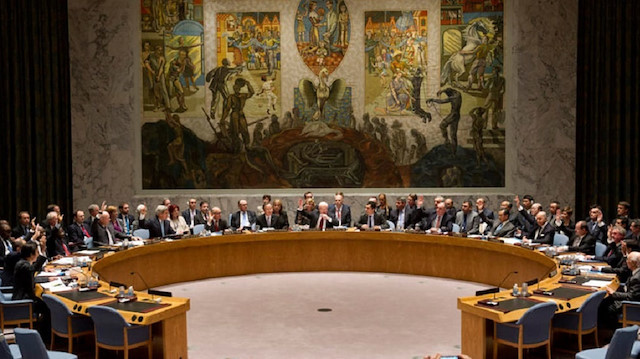
Security Council unanimously adopts resolution, highlights more than 10,000 cases of missing persons in Syria
The U.N. Security Council adopted a resolution Tuesday aimed at addressing missing persons in armed conflicts.
The resolution is the first of its kind to be adopted in the U.N., carried forward by Kuwait which currently chairs the Council for the month of June.
It is designed to prevent civilians from going missing during conflicts, protecting those who have gone missing, and creating mechanisms to search and identify missing persons as well as relaying information to family members of those missing individuals.
"The anguish and uncertainty can jeopardize the prospects for reconstructing the social fabric of conflict affected communities and societies," said Reena Ghelani, director of the operations and advocacy for the U.N. Office for the Coordination of Humanitarian Affairs (OCHA).
While the resolution was passed unanimously in the Security Council, it may face its first test in the Syrian conflict, in which thousands of persons have been reported missing at the hands of the Bashar al-Assad regime.
The regime has launched a new offensive in the northwest Syria, where millions of people are at risk.
More than 160 civilians have been killed and 270,000 displaced last month alone due to heavy shelling and aerial bombardment between the regime and opposition forces, according to the U.N.
The International Committee of the Red Cross (ICRC) found there have been more than 10,000 cases of missing persons in the Syrian conflict.
"Families deserve information from the regime on the fate of their loved ones," said the U.S. acting permanent representative to the U.N. Jonathan Cohen.
The resolution is not specific to any country but the Syrian conflict has underlined existing gaps in previous U.N. regulations on protecting missing persons.
Gheelani also noted the case of enforced disappearances in Myanmar, South Sudan, and Yemen. "The law prohibits enforced disappearance," she said.
"Some of the most horrific consequences of war are those we cannot see," ICRC President Peter Maurer told the Council. "This is perhaps most starkly evident when it comes to the critical issue of missing persons."






